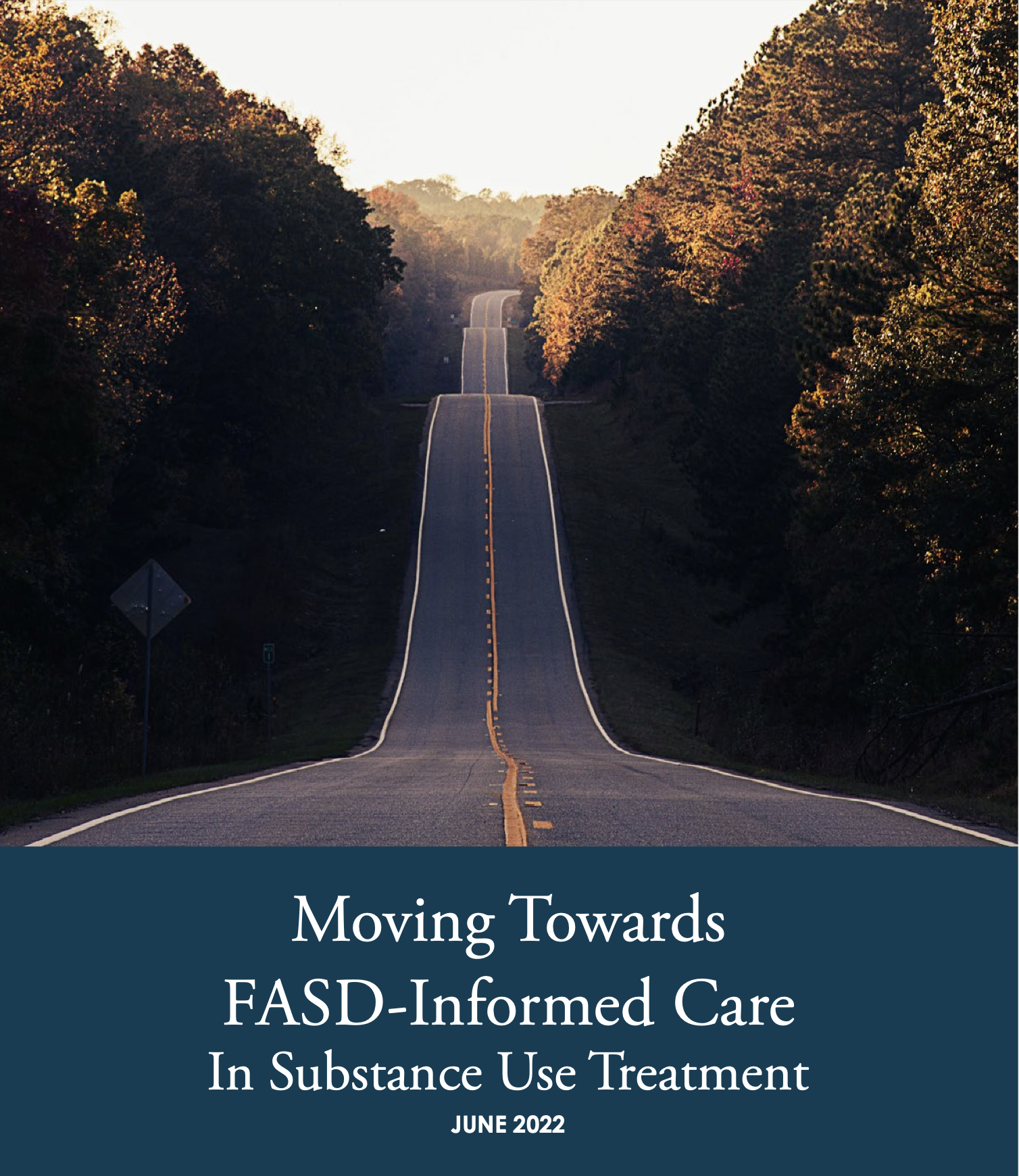With rates of substance use hospitalizations and overdoses increasing, addictions professionals are more valuable than ever. We published a guide for addictions professionals with evidence-based practices to support people with FASD who are in treatment for substance use.
Substance use and fetal alcohol spectrum disorder
Fetal Alcohol Spectrum Disorder (FASD) is a lifelong disability impacting the brain and body of people prenatally exposed to alcohol. People with FASD have both strengths and challenges and they are capable of change and growth. Individuals with FASD who use substances will benefit from substance use treatment, but it is up to service providers to think about how we can support growth.
FASD impacts 4% of people. It is more common than autism, cerebral palsy, and Down syndrome combined. People with FASD experience high rates of alcohol and substance use and misuse. One study found that 38% of people with FASD were using or misusing alcohol and 46% other substances.
People with FASD in substance use treatment
If you are an addiction professional there is a good chance you’ve come into contact with someone with FASD, even if you didn’t recognize it at the time. Many people who have FASD have never been diagnosed and some who go through treatment aren’t recognized as having FASD.
People with FASD have brain-based differences that can make it hard for them to succeed in traditional substance use treatment. These differences can impact language, memory, attention, learning, participation, emotional responses, and adaptive functioning. Research has shown that a key barrier to treatment success is a lack of knowledge about FASD and how it impacts treatment.
Adjusting treatment for those with FASD
 People with FASD will benefit most when treatment for substance use is tailored to their unique needs. Providers can leverage their own experience to adjust and accommodate their program, as well as leaning on the experience of the individual, their support network, and FASD support workers.
People with FASD will benefit most when treatment for substance use is tailored to their unique needs. Providers can leverage their own experience to adjust and accommodate their program, as well as leaning on the experience of the individual, their support network, and FASD support workers.
This may seem a little overwhelming, but this guide is meant to help addictions professionals create successful accommodations for people with FASD in treatment. Here are a few things to keep in mind:
- Reframe how you think about behavior
Behaviors in people with FASD may relate to the brain-based differences they experience. For example, missing appointments, often losing or forgetting to bring materials, and missing medication doses can be related to memory impairment. Providing time management assistance (i.e. visual schedules) and creating a strong structure and routine can help.
- Identify and screen for FASD
With high rates of substance use in this population, it’s important to know if the individual you are treating has FASD. This guide will give you the information you need to adopt the appropriate FASD screening tool for your setting.
- Support entry into programming
Take the time to intentionally consider the barriers to eligibility and access that prevent people with FASD from starting or even seeking out your treatment program.
- Adjust your treatment to the individual
Like all clients, a “one size fits all” approach isn’t effective for people with FASD. Adjust your approach to fit the needs of each individual by considering their experiences, collaborating with external supports, and incorporating targeted interventions.
- Support transitioning out of treatment
Make a plan to phase the individual out of treatment that will encourage them to maintain healthy outcomes. The plan should focus on their strengths, consider their experiences and needs, and collaborate with external supports and services.
- Collaborate with other external services
People with FASD have complex needs and often access other heath, social, housing, legal, transportation, childcare, and cultural services. Consider the individual’s needs and facilitate referrals or connection with external services.
- Integrate FASD prevention into treatment
The stigma surrounding substance use in pregnancy can be a barrier to accessing treatment. Engaging people in safe and respectful discussions about alcohol and substance use can be critical to ensuring they access and stay in treatment, and is an important factor in reducing alcohol use in pregnancy.
- Provide continuing FASD training and education
Ensure each member that is involved in the care and treatment of people with FASD is well trained in how to best support these individuals. This includes those who administer treatment, as well as administrative and management personnel.
- Use harm reduction, relational, and person-first approaches
Treatment should be culturally safe, strengths based, trauma-informed, sex- and gender-informed, and should promote interdependence. Recognize that there can be healthy solutions beyond abstinence. Consider adopting creative and relational approaches for those with FASD to better support their wellbeing.
- Evaluate the program success
Make sure your program is accountable and responsive by monitoring and evaluating your program. This can help you to adjust things that aren’t working and to know what techniques may be more effective.
The guide explains these concepts and much more in detail. Download the full guide here. Help improve substance use treatment for people with FASD!
